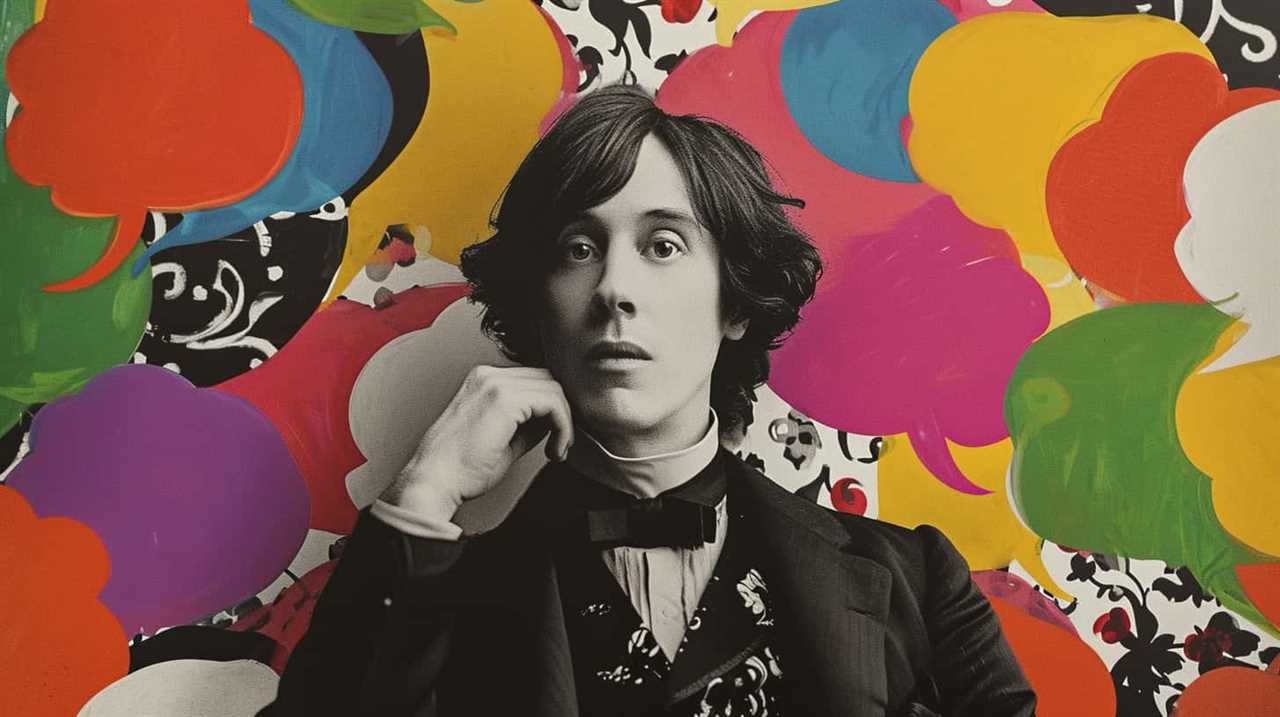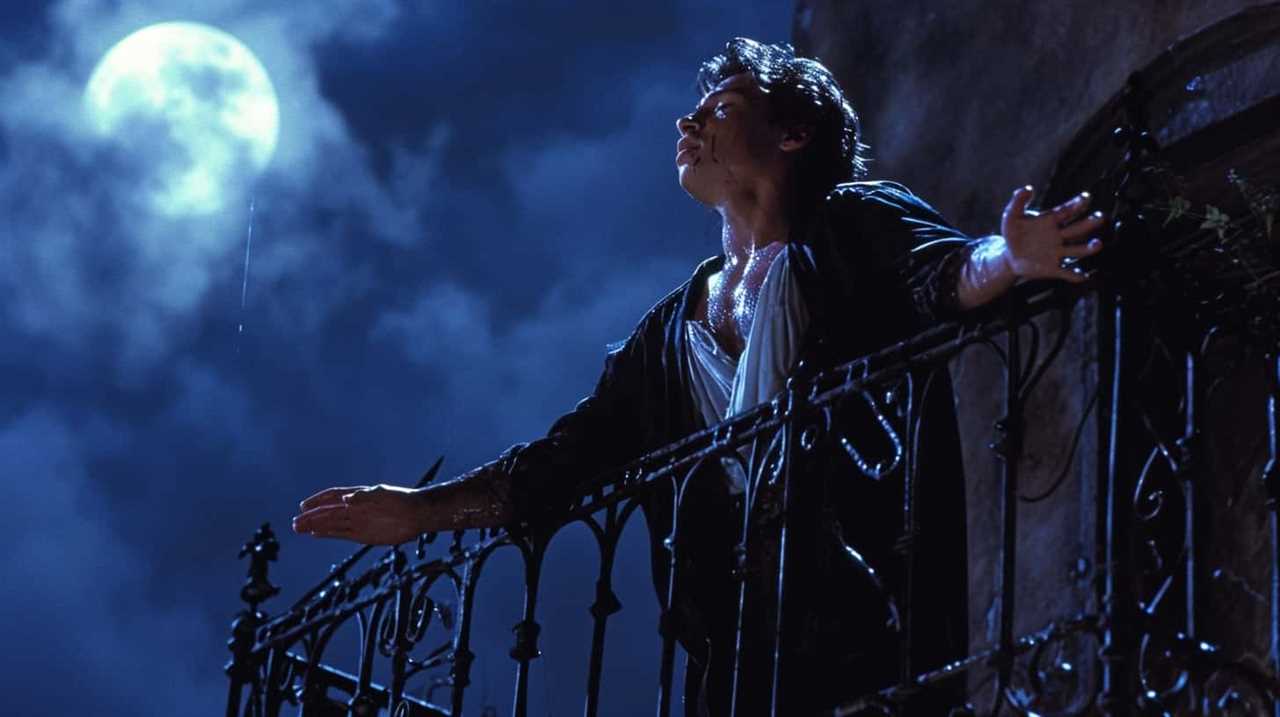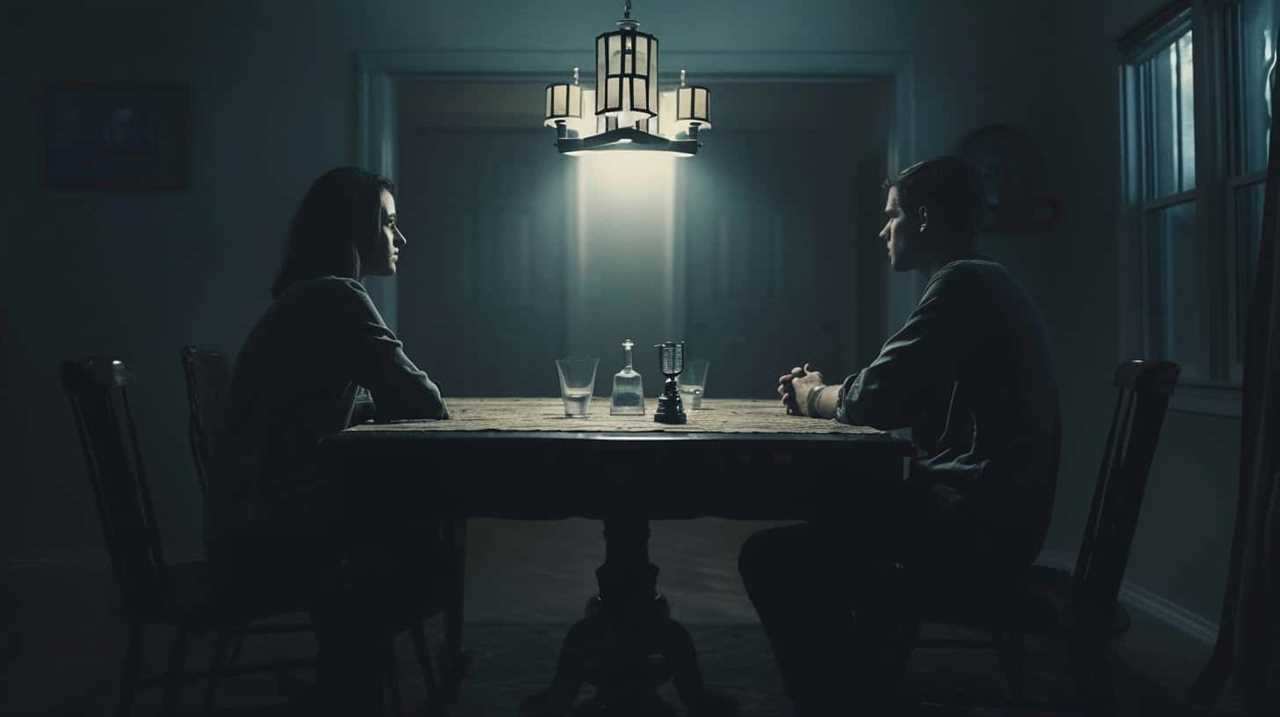It is commonly believed that first impressions are important, and this holds particularly true in the realm of classic literature, where the opening lines can make a lasting impact.
From the iconic ‘It is a truth universally acknowledged’ to the haunting ‘Call me Ishmael,’ these literary masterpieces grab your attention from the get-go. In just a few words, they transport you to another time and place, sparking your imagination and leaving you hungry for more.
So, if you’re craving a dose of innovation and a taste of literary greatness, look no further. We’ve compiled eight of the most unforgettable first lines from classic literature. Get ready to be captivated, inspired, and transported to worlds that will stay with you long after you turn the final page.
Key Takeaways
- Opening lines in classic literature set the tone and atmosphere of the story.
- Symbolic weather in opening lines creates anticipation and foreshadows the narrative.
- Memorable first lines leave a lasting impression on readers and ignite the imagination.
- First lines showcase the author’s skill in crafting memorable language and creating a distinct voice for their work.
It Is a Truth Universally Acknowledged
It’s undeniable that the notion of ‘It Is a Truth Universally Acknowledged’ permeates the literary world with its inescapable presence. This iconic phrase, uttered by Jane Austen in Pride and Prejudice, has become synonymous with classic literature and serves as a perfect example of the use of symbolism in literature.

The phrase itself symbolizes the societal norms prevalent during the time Austen wrote her novel. It encapsulates the rigid expectations placed upon women in society, particularly in regards to marriage and social status.
By opening her novel with this line, Austen immediately establishes the central theme of her work – the exploration of societal norms and the consequences of challenging them. The phrase acts as a powerful symbol, highlighting the limitations and expectations imposed on women, as well as the consequences they face when they deviate from the prescribed path.
Austen’s use of symbolism in this iconic line not only captivates readers but also invites them to critically analyze the societal norms depicted in classic literature. It prompts us to question the influence of societal expectations on individuals and to consider the consequences of defying these norms.
Call Me Ishmael
You may have heard it before, but one of the most memorable first lines in classic literature is ‘Call me Ishmael.’ This opening line, from Herman Melville’s Moby-Dick, immediately captivates the reader and sets the tone for the entire novel. By inviting the reader to address him by a different name, Ishmael establishes a sense of intimacy and familiarity, drawing the reader into his narrative.

The symbolic imagery and narrative structure employed in the first sentence of Moby-Dick are emblematic of the innovative nature of classic literature. The name ‘Ishmael’ carries biblical connotations, representing an outsider or wanderer. This sets up the overarching theme of the novel, which explores humanity’s relationship with the unknown and the search for meaning.
The narrative structure of Moby-Dick is also intriguing. Ishmael immediately introduces himself as the narrator, establishing a personal connection with the reader. This approach allows the reader to experience the events of the story through Ishmael’s perspective, creating a sense of immersion and empathy.
Transitioning to the subsequent section about ‘happy families are all alike,’ it’s fascinating to see how different authors utilize various techniques to engage their readers right from the first line.
Happy Families Are All Alike
As we delve deeper into the exploration of unforgettable first lines from classic literature, let’s now shift our focus to the thought-provoking phrase ‘Happy families are all alike,’ which embodies the next captivating subtopic. This famous line, penned by Leo Tolstoy in his novel Anna Karenina, sets the stage for an insightful examination of the complexities of familial happiness.

Tolstoy’s use of the phrase ‘Happy families are all alike’ immediately captivates readers, challenging the conventional notion that happiness is unique and varied. By asserting that all happy families are alike, Tolstoy suggests that there’s a universal formula for happiness within familial relationships.
The symbolic weather in this line further enhances its impact on readers. By associating happiness with a particular weather condition, Tolstoy creates a vivid image that resonates with readers on a subconscious level. This technique not only adds depth to the line but also serves as a metaphor for the stability and harmony experienced within happy families.
The impact of this line on readers is profound, as it compels them to reflect on their own understanding of happiness within their families. It forces us to question the complexities and nuances that exist within familial relationships and challenges us to reevaluate our own definitions of happiness.
In a Hole in the Ground
In the depths of an earthy abyss, lies the beginning of a whimsical tale. ‘In a hole in the ground there lived a hobbit,’ J.R.R. Tolkien famously penned in the opening line of The Hobbit. This seemingly simple sentence holds a symbolic meaning that extends far beyond its literal interpretation. The hole represents the hidden depths within each of us, the unexplored territories of our own minds and souls. It represents the potential for adventure and self-discovery that lies within, waiting to be uncovered.

Tolkien’s choice of a hole in the ground as the starting point for his story is no coincidence. It serves as a metaphor for the journey that the protagonist, Bilbo Baggins, will undertake throughout the novel. Just as the hole in the ground leads to a vast and unknown world, so too does Bilbo’s decision to leave the comfort of his home and embark on an epic quest.
This opening line sets the stage for a story that will take readers on a thrilling adventure, while also inviting them to reflect on their own hidden depths and the possibilities that lie within. It reminds us that sometimes, the greatest treasures are found not in the grandest of places, but in the most unexpected corners of our own lives.
And so, from the depths of this earthy abyss, we transition to the subsequent section about ‘it was the best of times,’ where we’ll explore another unforgettable first line from classic literature.
It Was the Best of Times
Transitioning from the depths of an earthy abyss, we now find ourselves in a time of great prosperity and opportunity. It was the best of times, a phrase that has become synonymous with Charles Dickens’ novel, ‘A Tale of Two Cities.’ This iconic opening line sets the stage for a tale that intertwines personal struggles with the turbulent backdrop of the French Revolution.

The use of ‘It was the best of times’ serves as a powerful contrast to the subsequent line, ‘it was the worst of times.’ This juxtaposition immediately captures the reader’s attention and creates a sense of anticipation. The symbolic weather described in the following lines further adds to the impact on readers. The ‘spring of hope’ and the ‘winter of despair’ evoke strong emotions and foreshadow the challenges and triumphs that lie ahead.
Dickens’ choice of words and imagery not only sets the tone for the novel but also highlights the universal nature of human experiences. By presenting contrasting times, Dickens invites readers to reflect on their own lives and the various seasons they’ve encountered. It’s a reminder that even in the midst of chaos and uncertainty, there’s always room for hope and the possibility of a better future.
The unforgettable first line of ‘A Tale of Two Cities’ goes beyond mere words on a page. It serves as a testament to the power of literature to capture the essence of the human condition and provoke introspection. Dickens’ masterful opening sentence leaves a lasting impression and invites readers to embark on a journey that will challenge their perspectives and ignite their imaginations.
All Happy Families Are Alike
During moments of reflection, you may find that all happy families resemble one another. But what’s it about these families that make them alike? Let’s delve deeper into the symbolic weather and impact of opening lines to uncover the hidden layers behind this notion.

- Opening lines set the tone: Just like the first rays of sunlight that indicate a new day, the opening lines of a story establish the mood and atmosphere. They give readers a glimpse into the world of the characters, providing a sense of what’s to come.
- Weather as a metaphor: Symbolic weather often appears in the opening lines of classic literature. Stormy weather may foreshadow conflict and turmoil within a seemingly happy family. Alternatively, a calm and sunny day could represent the facade of happiness masking underlying issues.
- Universality of family dynamics: All happy families might resemble one another because they share common themes and struggles. Opening lines that explore themes of love, loss, and identity resonate with readers across cultures and time periods. These universal experiences create an immediate connection with the audience.
It Was a Bright Cold Day
Imagine starting a novel with the line, ‘It was a bright cold day.’ In just seven words, the author sets the stage for a story that’s about to unfold. Symbolic weather in literature has always been a powerful tool, and this opening line immediately grabs your attention and makes you wonder what’s coming next.
Memorable opening scenes are crucial in capturing the reader’s interest, and this line does exactly that, leaving a lasting impact that will make you want to keep reading.
Symbolic Weather in Literature
As you delve into the world of classic literature, you’ll encounter vivid descriptions of symbolic weather that transport you to another time and place. Symbolic imagery and literary devices are often used to convey deeper meanings and evoke certain emotions within the reader. When authors use weather as a symbol in literature, it adds an extra layer of significance to the story.
Here are three ways in which symbolic weather is used:

- Foreshadowing: The weather can serve as a foreshadowing device, hinting at future events or the overall tone of the story.
- Mood setting: The description of weather can create a specific atmosphere and set the mood for the narrative, influencing the reader’s emotions and expectations.
- Character reflection: Weather can be used to reflect the inner state of a character, mirroring their emotions or acting as a metaphor for their internal struggles.
Memorable Opening Scenes
When you think of memorable opening scenes in classic literature, it’s impossible to forget the iconic line, ‘It was a bright cold day in April, and the clocks were striking thirteen.’ This striking sentence, from George Orwell’s dystopian novel 1984, immediately captures the reader’s attention with its symbolic imagery and narrative hooks.
The juxtaposition of a bright day with a cold atmosphere creates a sense of unease, foreshadowing the oppressive and controlled society depicted in the novel. The clocks striking thirteen adds another layer of intrigue, defying the reader’s expectations and setting the stage for the unconventional world Orwell has created.
This opening scene not only sets the tone for the novel but also serves as a powerful example of how a single line can captivate readers and draw them into the story.
Impact of Opening Lines
To fully grasp the impact of the opening line ‘It was a bright cold day in April, and the clocks were striking thirteen’ in George Orwell’s 1984, you must reflect on the powerful symbolism and narrative intrigue it immediately creates.

This opening line sets the stage for the dystopian world in which the story takes place, using symbolic elements to convey a sense of oppression and control. The juxtaposition of ‘bright’ and ‘cold’ suggests a society that appears pleasant on the surface but is ultimately chilling and oppressive. The mention of the clocks striking thirteen introduces a sense of unease and hints at a world where reality is manipulated and distorted.
Marley Was Dead, to Begin With
You’ll never forget when Marley kicked the bucket. This famous line from Charles Dickens’ ‘A Christmas Carol’ not only sets the tone for the entire novella but also introduces a powerful symbol that permeates the story. Marley’s death represents the start of Ebenezer Scrooge’s transformative journey, as it serves as a reminder of the inevitability of death and the consequences of a life lived without compassion.
The symbolism in literature is a powerful tool that enables authors to convey deeper meanings and themes. In this case, Marley’s death symbolizes the spiritual decay and moral bankruptcy that Scrooge embodies at the beginning of the story. It emphasizes the importance of redemption and the potential for change, setting the stage for the transformative events that follow.
The opening line also sets the tone for the rest of the novella. It immediately captures the reader’s attention, evoking a sense of intrigue and curiosity. By starting with such a bold and unforgettable statement, Dickens ensures that readers are engaged from the very beginning, eager to uncover the secrets and revelations that lie ahead.

Innovative and groundbreaking, Dickens’ use of the opening line in ‘A Christmas Carol’ demonstrates the power of first lines in setting the tone and capturing the reader’s imagination. It serves as a reminder that the impact of a single sentence can shape the entire reading experience, leaving a lasting impression that will never be forgotten.
Frequently Asked Questions
What Is the Significance of the First Line "It Is a Truth Universally Acknowledged" in Classic Literature?
The first line "It is a truth universally acknowledged" holds immense significance in classic literature. Its impactful words captivate readers, setting the tone and foreshadowing themes of societal norms, satire, and the complexities of human nature.
How Does the Opening Line "Call Me Ishmael" Set the Tone for Moby-Dick?
The opening line "Call me Ishmael" sets the tone for Moby-Dick by immediately drawing you into the story and introducing the protagonist. It creates a sense of mystery and intrigue, setting the scene for an epic adventure on the high seas.
Why Do All Happy Families Seem to Be Alike According to the Opening Line of Anna Karenina?
"Happy families are alike" sets the stage for Anna Karenina by highlighting the significance of familial harmony. It is a truth universally acknowledged that such families symbolize the ideal, creating a captivating and relatable starting point for the audience.

What Is the Connection Between the First Line "In a Hole in the Ground" and J.R.R. Tolkien’s the Hobbit?
The opening line ‘in a hole in the ground’ in J.R.R. Tolkien’s The Hobbit symbolizes the journey into the unknown, mirroring the protagonist’s adventure. It sets the tone for an imaginative and captivating tale of bravery and discovery.
How Does the Famous Opening Line "It Was the Best of Times" Establish the Setting and Atmosphere in Charles Dickens’ a Tale of Two Cities?
In "A Tale of Two Cities," Charles Dickens establishes the setting and creates an atmospheric tone with the famous opening line, "It was the best of times." This line symbolizes the stark contrast and duality present in the novel’s setting, foreshadowing the tumultuous events to come.
Can the First Lines of Classic Literature Teach Important Life Lessons?
Absolutely! Learning from classic literature is a great way to gain valuable life lessons. The first lines of classic literature often set the tone for the entire work and can offer profound insights into human nature, relationships, and wisdom. These powerful opening lines can provide timeless guidance for navigating life’s challenges and triumphs.
Conclusion
In conclusion, these unforgettable first lines from classic literature serve as powerful invitations into the stories that follow. They captivate readers from the start, leaving a lasting impression and setting the tone for the entire narrative.
For instance, the opening line ‘It is a truth universally acknowledged’ from Jane Austen’s Pride and Prejudice immediately establishes the theme of societal expectations and sets the stage for the complex relationships and social dynamics that unfold throughout the novel.

These opening lines not only hook readers but also provide a glimpse into the themes and ideas that will be explored in the literary masterpieces that follow.
Lauren’s talent in writing is matched by her passion for storytelling. Her love for books and deep understanding of culture and entertainment add a distinct flavor to her work. As our media and press contact, Lauren skillfully bridges the gap between afterQuotes and the broader media landscape, bringing our message to a wider audience.










